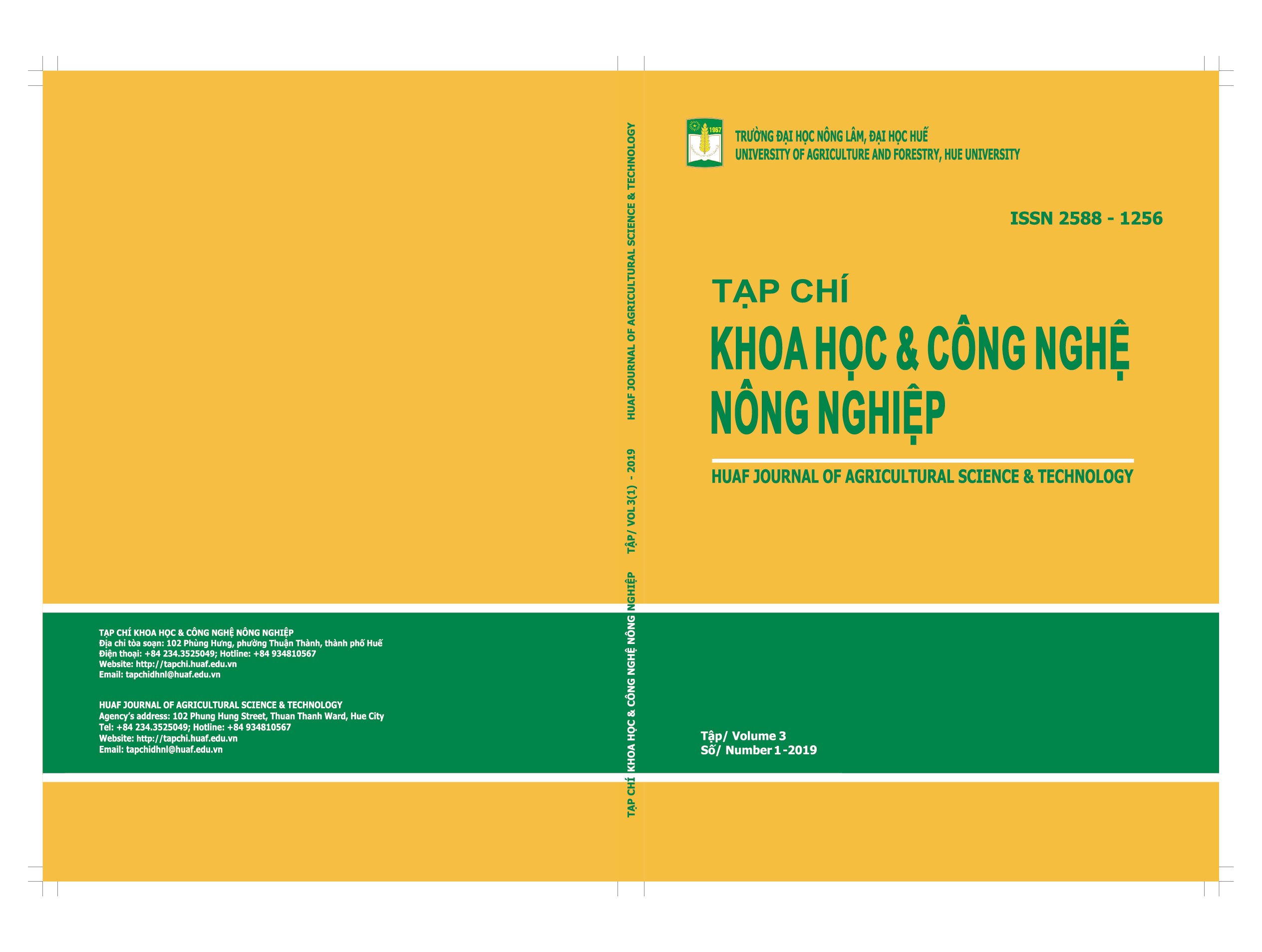##plugins.themes.huaf_theme.article.main##
Tóm tắt
Nghiên cứu này đã sử dụng mô hình hồi quy Logit đa thức với phương pháp ước lượng MLE nhằm đánh giá tác động từ chương trình giảm nghèo đến khả năng thoát nghèo của các hộ dân tộc thiểu số. Số liệu được thu thập bằng cách phỏng vấn trực tiếp 260 hộ gia đình dân tộc thiểu số tại huyện Bác Ái, tỉnh Ninh Thuận. Kết quả nghiên cứu cho thấy, xác suất hộ cận nghèo và hộ nghèo sẽ thoát nghèo là 12,35% và 8,1%. Bên cạnh đó, các yếu tố ảnh hưởng đến khả năng thoát nghèo của hộ dân tộc thiểu số như tuổi chủ hộ, trình độ học vấn, tỷ lệ lao động, diện tích đất nông nghiệp, nghề nghiệp của chủ hộ và chính sách hỗ trợ, trong đó biến chính sách hỗ trợ có ảnh hưởng tích cực đến nhóm hộ cận nghèo nhưng ảnh hưởng tiêu cực lên nhóm hộ nghèo.
ABSTRACT
The study used a multinomial Logit regression model with MLE estimating method to evaluate probability the impact of poverty reduction programs on the ability of ethnic minority households to escape from the poverty. Data were collected by interviewing 260 ethnic households directly in Bac Ai
district, Ninh Thuan province. The results show that the probability of a poor and pro-poor ethic minority household escaping from the poverty is 8.1% and 12.35%, respectively. In addition, factors affecting the ability of the ethnic minority households to escape from the poverty are household heads’ age, education levels, labor rates, agricultural land areas, the occupation of the household heads and support policies. The change in supporting policies has a positive impact on the pro-poor households but negatively affects poor households.
